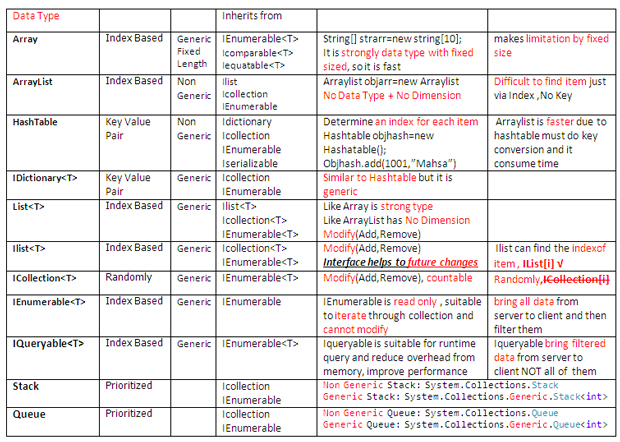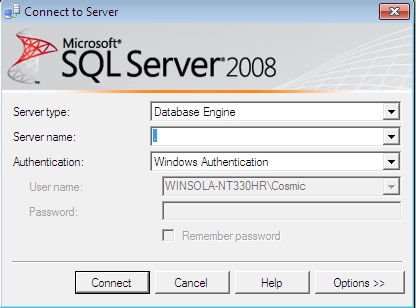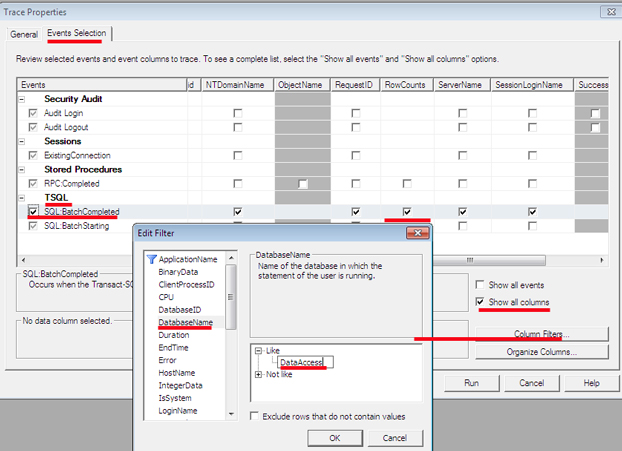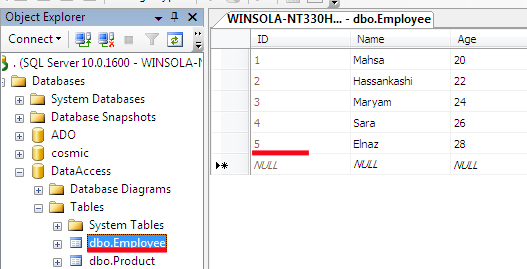本文對常用的資料結構:Array, ArrayList,List,IList,ICollection, Stack, Queue, HashTable, Dictionary, IQueryable, IEnumerable等進行詳述。

一、Collection(集合)Collection是資料記錄集合,編寫程式碼過程中,常常需要合適的容器儲存臨時資料,方便修改和查詢,如何選取合適的資料容器,關鍵在於將執行的資料操作以及資料記錄是否大量。

二、Array(陣列)
特徵
1. 固定大小,陣列的大小是初始化時決定無法修改的數值。
2. 強型別,儲存資料元素型別必須在初始化時指定,因此在執行時,不需要耗費額外的時間來定義陣列型別,能夠大大提升執行效率。
3. 可使用Foreach關鍵字實現陣列迭代和查詢。
因為陣列大小是固定的,且是強型別資料結構,因此在執行時只佔用很少的記憶體,執行時效率很高。

三、ArrayList
1. ArrayList 沒有固定的長度,容量可動態增加,可應用於開發人員無法確定陣列元素個數等場景,當然這種情況下,在定義結構體的時候會非常耗時。
2. ArrayList 不是強型別,ArrayList中不同元素型別可以不相同,並且需要在執行時根據實際的輸入來確定元素型別。因此在執行時消耗記憶體較多。
3. 可使用Froeach 關鍵字操作ArrayList。

ArrayList支援String,int,以及十進位制小數型別。
四、HashTable(雜湊表)
HashTable是一種定義關鍵字的資料結構體,使用雜湊表查詢資料非常方便,雜湊表既不是強型別也不固定大小限制。

五、Stack
棧是最典型的資料結構,棧具有優先順序劃分的資料結構,棧為每個內容項定義優先順序,表示每個Item入棧和出棧的優先順序。因此操作棧中的資料,需要先將資料push 到棧的頂部,需要刪除元素必須變成棧頂部,即要遵守後進先出(LIFO)的原則。
棧與雜湊表一樣既不是強型別也不限制元素個數。

Push 操作
-
//Stack is LIFO: Last in First Out
-
System.Collections.Stack objStackPush = new System.Collections.Stack();
-
-
//By Push method you can insert item at the top of the stack
-
objStackPush.Push("Mahsa");
-
objStackPush.Push("Hassankashi");
-
this.lblPop.Text = "";
-
this.ListBoxStack.DataSource = objStackPush.ToArray();
-
this.ListBoxStack.DataBind();
複製程式碼
Pop操作
-
System.Collections.Stack objStackPop = new System.Collections.Stack();
-
-
objStackPop.Push("Mahsa");
-
objStackPop.Push("Hassankashi");
-
-
//By Pop method you can remove item from the top of the stack --> Last in First in
-
this.lblPop.Text = objStackPop.Pop().ToString();
-
-
this.ListBoxStack.DataSource = objStackPop.ToArray();
-
this.ListBoxStack.DataBind();
複製程式碼
六、Queue
Queue同棧一樣也是具有優先順序定義的結構體,遵循的規則是先進先出(FIFO),既不是強型別也不具有固定的大小限制。

入隊操作
-
//Queue is FIFO: First in First Out
-
System.Collections.Queue objQueue = new System.Collections.Queue();
-
-
//By Enqueue method you can insert item at the END of the Queue
-
objQueue.Enqueue("Mahsa");
-
objQueue.Enqueue("Hassankashi");
-
objQueue.Enqueue("Cosmic");
-
objQueue.Enqueue("Verse");
-
-
this.lblQueue.Text = "";
-
this.ListBoxQueue.DataSource = objQueue.ToArray();
-
this.ListBoxQueue.DataBind();
複製程式碼
出隊操作
-
System.Collections.Queue objQueue = new System.Collections.Queue();
-
-
objQueue.Enqueue("Mahsa");
-
objQueue.Enqueue("Hassankashi");
-
objQueue.Enqueue("Cosmic");
-
objQueue.Enqueue("Verse");
-
-
//By Dequeue method you can remove item from the BEGINING of the Queue --> First in First out FIFO
-
this.lblQueue.Text=objQueue.Dequeue().ToString();
-
-
this.ListBoxQueue.DataSource = objQueue.ToArray();
-
this.ListBoxQueue.DataBind();
複製程式碼
入隊操作
-
System.Collections.Queue objQueue = new System.Collections.Queue();
-
-
objQueue.Enqueue("Mahsa");
-
objQueue.Enqueue("Hassankashi");
-
objQueue.Enqueue("Cosmic");
-
objQueue.Enqueue("Verse");
-
-
//By Dequeue method you can remove item from the BEGINING of the Queue --> First in First out FIFO
-
this.lblQueue.Text=objQueue.Dequeue().ToString();
-
-
this.ListBoxQueue.DataSource = objQueue.ToArray();
-
this.ListBoxQueue.DataBind();
複製程式碼
七、List
什麼情況下需要使用List?
1. List長度可不固定
2. 當資料為通用型別,List是強型別,List中元素型別不需要等到執行時來確定,這種特性使得List 執行時效率非常高。
3. 可使用Foreach關鍵字。
因為List不需要設定固定的大小,List靈活度高,且效率高常用於開發過程中。

-
//Like Array is Strong Type
-
//Like ArrayList with No Dimension
-
System.Collections.Generic.List<string> strList = new List<string>();
-
-
strList.Add("Mahsa");
-
strList.Add("Hassankashi");
-
strList.Add("Cosmic");
-
strList.Add("Verse");
-
-
this.ListBoxListGeneric.DataSource = strList;
-
this.ListBoxListGeneric.DataBind();
-
-
System.Text.StringBuilder str = new System.Text.StringBuilder();
-
-
foreach (var item in strList)
-
{
-
str.Append(" , " + item);
-
}
-
this.lblList.Text = str.ToString();
複製程式碼
八、IList
IList 繼承了List,包含多種方法的List介面。如果你無法判斷程式碼改動的可能性,可以使用IList介面,減少模組之間的依賴性。IList是介面因此無法被例項化,所以必須使用List來初始化。
-
//Ilist can not be instantiate from Ilist , so it should be instantiate from List
-
System.Collections.Generic.IList<string> strIList = new List<string>();
-
-
strIList.Add("Mahsa");
-
strIList.Add("Hassankashi");
-
strIList.Add("Cosmic");
-
strIList.Add("Verse");
-
-
this.ListBoxListGeneric.DataSource = strIList;
-
this.ListBoxListGeneric.DataBind();
-
-
System.Text.StringBuilder str = new System.Text.StringBuilder();
-
-
foreach (var item in strIList)
-
{
-
str.Append(" , " + item);
-
}
-
this.lblList.Text = str.ToString();
複製程式碼
我們一起了解一下具體的類和介面之間的區別。
1. 具體類可繼承其他類,並實現一個或多個介面。
2. 在內部類中可以定義變數並賦值,介面中不允許此操作。
3. 具體類可包含建構函式,而介面中不能定義建構函式
4. 抽象類中可包含訪問修飾符如public,private等,介面中不能包含。

-
//IEnumerable can not be instantiate from Enumerable , so it should be instantiate from List
-
System.Collections.Generic.IEnumerable<Employee> empIEnumerable = new List<Employee> {
-
new Employee { ID = 1001, Name="Mahsa"},
-
new Employee { ID = 1002, Name = "Hassankashi" },
-
new Employee { ID = 1003, Name = "CosmicVerse" },
-
new Employee { ID = 1004, Name = "Technical" }
-
};
-
-
this.GridViewIEnumerable.DataSource = empIEnumerable;
-
this.GridViewIEnumerable.DataBind();
-
-
System.Text.StringBuilder str = new System.Text.StringBuilder();
-
-
foreach (Employee item in empIEnumerable)
-
{
-
str.Append(" , " + item.ID +"-"+item.Name);
-
}
-
this.lblIEnumerable.Text = str.ToString();
複製程式碼
九、IEnumerable
IEnumerable常用於遍歷集合元素,但是無法修改(刪除或新增)資料,使用IEnumberable 會從伺服器端將所有資料拷貝到客戶端,並進行一定的過濾,如果伺服器端有大量資料會造成記憶體負載超重。

-
//IEnumerable can not be instantiate from Enumerable , so it should be instantiate from List
-
System.Collections.Generic.IEnumerable<Employee> empIEnumerable = new List<Employee> {
-
new Employee { ID = 1001, Name="Mahsa"},
-
new Employee { ID = 1002, Name = "Hassankashi" },
-
new Employee { ID = 1003, Name = "CosmicVerse" },
-
new Employee { ID = 1004, Name = "Technical" }
-
};
-
-
-
this.GridViewIEnumerable.DataSource = empIEnumerable;
-
this.GridViewIEnumerable.DataBind();
-
-
System.Text.StringBuilder str = new System.Text.StringBuilder();
-
-
foreach (Employee item in empIEnumerable)
-
{
-
str.Append(" , " + item.ID +"-"+item.Name);
-
}
-
this.lblIEnumerable.Text = str.ToString();
複製程式碼
十、IQueryableIQueryable與IEnumberable不同的是,當從伺服器端載入過量的資料,IQueryable會自動減少應用負載。IQueryable可保證大資料量時應用程式的高效能。IQueryable會先過濾資料,然後傳送給客戶端。
-
DataAccessEntities ctx = new DataAccessEntities();
-
var ctx = new DataAccessEntities();
複製程式碼


十一、SQL
Profiler:
如何追蹤查詢語句生成TSQL,生成需要的資料結構體:
Step 1:
-
Start -> MS SQL Server 2008 -> Performance Tools -> SQL Server Profiler
複製程式碼
 Step 2:
Step 2:
-
SQL Server Profiler -> File -> New Trace
複製程式碼

Step 3:
輸入連線資料庫的使用者名稱和密碼

Step 4:
-
General (Tab) -> Use the Template: Standard
複製程式碼

Step 5:
-
Event Selection (Tab) -> Event : TSQL -> Select : SQL-BatchCompleted | Select Show all Columns
-
-
Press Column Filter -> Database Name: Like: "DataAccess"
複製程式碼
執行

Step 6:
檢視結果

Step 7:生成 IEnumerable資料
:
-
SELECT
-
[Extent1].[ID] AS [ID],
-
[Extent1].[Name] AS [Name],
-
[Extent1].[Age] AS [Age]
-
FROM [dbo].[Employee] AS [Extent1]
複製程式碼

生成 IQueryable
:
-
SELECT
-
[Extent1].[ID] AS [ID],
-
[Extent1].[Name] AS [Name],
-
[Extent1].[Age] AS [Age]
-
FROM [dbo].[Employee] AS [Extent1]
-
WHERE 1 = [Extent1].[ID]
複製程式碼

ICollection 繼承了IEnumberable,但是IEnumberable是基於索引的,ICollection不基於索引。

十二、Stack Generic
入棧:
-
//Stack is LIFO: Last in First Out
-
//Here is for Push Stack in Generic
-
//System.Collections.Stack objStackPush = new System.Collections.Stack();
-
//Stack<T> can be instantiated from Stack<T>
-
-
System.Collections.Generic.Stack<int> objStackPush = new System.Collections.Generic.Stack<int>();
-
-
objStackPush.Push(1);
-
objStackPush.Push(2);
-
-
this.lblPopGeneric.Text = "";
-
this.ListBoxStackGeneric.DataSource = objStackPush.ToArray();
-
this.ListBoxStackGeneric.DataBind();
複製程式碼
Queue Generic
入隊:
-
//Stack is LIFO: Last in First Out
-
//Here is for Pop Stack in Generic
-
//System.Collections.Stack objStackPop = new System.Collections.Stack();
-
//Stack<T> can be instantiated from Stack<T>
-
-
System.Collections.Generic.Stack<int> objStackPop = new System.Collections.Generic.Stack<int>();
-
-
objStackPop.Push(1);
-
objStackPop.Push(2);
-
-
this.lblPop.Text = objStackPop.Pop().ToString();
-
this.ListBoxStack.DataSource = objStackPop.ToArray();
-
this.ListBoxStack.DataBind();
複製程式碼
出隊:
-
//Queue is FIFO: First in First Out
-
//Here is for Enqueue Queue in Generic
-
//System.Collections.Queue objQueue = new System.Collections.Queue();
-
//Queue<T> can be instantiated from Queue<T>
-
System.Collections.Generic.Queue<int> objQueue = new System.Collections.Generic.Queue<int>();
-
objQueue.Enqueue(1);
-
objQueue.Enqueue(2);
-
-
this.lblQueue.Text = "";
-
-
this.ListBoxQueue.DataSource = objQueue.ToArray();
-
this.ListBoxQueue.DataBind();
複製程式碼
十三、Dictionary
及 IDictionary:Dictionary 可通用,而雜湊表不是通用的。Dictionary定義
<TKey,Tvalue>。IDictionary是Dictionary的介面,如果在後期開發中需要大量修改,建議使用IDictionary。
-
System.Collections.Generic.Dictionary<int, string=""> objDictionary = new Dictionary<int, string="">();
-
-
objDictionary.Add(1001, "Mahsa");
-
objDictionary.Add(1002, "Hassankashi");
-
objDictionary.Add(1003, "Cosmicverse");
-
-
string str = objDictionary[1002];
-
-
this.ListBoxDictionary.DataSource = objDictionary;
-
this.ListBoxDictionary.DataBind();</int,>
複製程式碼
來源:http://blog.csdn.net/long316/article/details/52595248




















